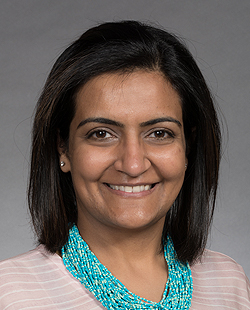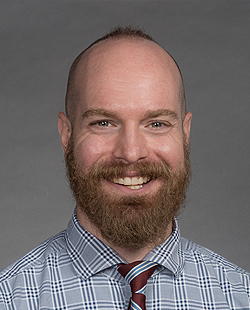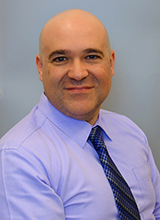Personal Statement
My clinical interests are delirium, women’s mental health and behavioral heath integration in primary care settings.

My clinical interests are delirium, women’s mental health and behavioral heath integration in primary care settings.

My primary clinical interest and expertise is in the evaluation and treatment of women with mental health issues during pregnancy and postpartum, as well as women’s mental health throughout the life cycle, including premenstrual and menopause-related psychiatric symptoms. In addition, I am interested and experienced in evaluation and treatment of anxiety disorders and depression.

Thank you for your interest in learning more about me! My name is Dr. Ruth Varkovitzky (she/her) and I am a licensed clinical psychologist. I use a culturally sensitive evidence based approach in my clinical work; combining the best science while tailoring therapy to each individual. In the spirit of providing the highest quality of care possible, I am board certified in Behavioral and Cognitive Psychology by the American Board of Professional Psychology.
I specialize in providing therapy for trauma and sleep disorders, such as PTSD and insomnia. In addition, I offer a variety of treatments to address problems with depression, anxiety, and OCD. Supporting folks with these challenges is my passion; it’s an honor to work alongside my clients and see them heal and grow.
Public service has always been part of my journey, including collaboration with shelters for survivors of domestic violence, the Department of Veterans Affairs, the University of Washington Department of Psychiatry and Behavioral Sciences, and the Washington State Board of Psychologist Examiners. In addition to my passion for clinical work, I’ve enjoyed contributing to psychological science through academic and media publications. I established my private practice Renewal Psychology to offer my services to clients in Washington as well as the many state members of the Psychology Interjurisdictional Compact (PSYPACT).

My clinical interests include diagnosis and psychopharmacology of complex mood and anxiety disorders and psychosis. My research program investigates the molecular neuroscience of behavior using animal models with a focus on the involvement of the serotonin system and the neurocircuitry and plasticity involved in stress and addiction.
My lab uses rat and mouse models to investigate stress and addiction mechanisms. The lab is unusual because we pursue a very broad range of methods, including molecular, cellular, neuroanatomical, and behavioral levels of organization. We have focused on serotonin receptors historically but increasingly we are using novel molecular and genetic tools to dissect the involvement of key neural circuits in behavioral models of stress and/or addiction.
The main strategies include a range of behavioral models, intersectional transgenic and viral-mediated gene transfer manipulations of gene expression, neuropharmacology, engineered receptors (DREADDs), fiber photometry, calcium imaging, two-photon microscopy, RNAseq and RTqPCR (using RiboTag pull-down). We are trying to push the envelope in developing and using methods that allow us very precise manipulations or readouts from specific pathways such as the projections from nucleus accumbens to ventral tegmentum or lateral habenula to dorsal raphe nucleus. We are also exploring the role of microglia, the innate immune cells in the brain, during early stages of drug and alcohol withdrawal in advance of typical activation of neuroinflammation.

I am a licensed clinical psychologist in Washington State. I am the Director of the University of Washington School of Medicine’s Psychology Internship Program which is accredited by the American Psychological Association’s Office of Program Consultation and Accreditation. And, I conduct research on health and risk behaviors across the lifespan. Specifically, I have conducted research in the areas of college student alcohol use, young adult gambling behavior, and co-morbidity of substance use and mental health/risk behaviors (i.e. risky sexual behaviors). I have extensive experience working with college students/young adults, military/veteran, and minority/diverse populations. I am also interested in mental health issues including depression, anxiety, and PTSD. I maintain an active clinical practice in the areas of mental health issues with patients diagnosed with hematological and oncological illness and have clinical responsibilities at the Fred Hutchinson Cancer Center. I also provide clinical supervision for psychology residents and psychology practicum students at Fred Hutchinson Cancer Center as well. Overall, my professional aspirations are to improve the public health through empirically-supported psychological interventions and providing mentorship to diverse trainees to expand the reach of psychology.